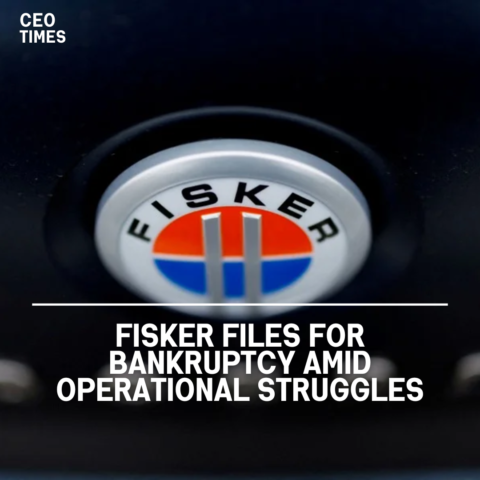Electric vehicle (EV) startup Fisker Inc. is on the brink of liquidation following its recent bankruptcy filing. The company, founded by automotive designer Henrik Fisker, struggled financially, ultimately burning through cash in its attempt to scale up production of its Ocean SUVs.
Bankruptcy Filing and Liquidation Plans:
Fisker filed for bankruptcy protection in Delaware after facing significant financial difficulties. Initially, the company aimed to secure additional financing to maintain “reduced operations.”
However, during a court hearing in Wilmington, Fisker’s attorney, Brian Resnick, stated that obtaining new financing was no longer anticipated. As a result, the company plans to liquidate its assets, having tentatively agreed to sell its 4,300 vehicles to a single buyer.
In 2023, Fisker generated approximately $273 million in revenue but incurred a substantial net loss of $940 million. The company owes over $850 million to two groups of bondholders. The larger group of bondholders has accused a minority faction, led by Heights Capital Management, of taking control of Fisker’s debt in a questionable transaction.
Creditor Dispute:
The dispute centers on a November transaction in which Heights Capital Management claimed all of Fisker’s assets as collateral on its bonds following a minor technical default by Fisker.
Other bondholders, represented by attorney Alex Lees, have contested this move, arguing that the transaction unfairly prioritized Heights’ repayment at the expense of other creditors. Lees contended that Fisker should have filed for bankruptcy last November to prevent Heights from gaining such leverage.
Heights Capital Management’s Position:
Heights’ attorney, Scott Greissman, defended the transaction, stating that Heights had attempted to support Fisker’s survival and that the expected sale of Fisker’s fleet would only cover a fraction of Heights’ $185 million debt. Consequently, other creditors are unlikely to see any repayment.
Linda Richenderfer, an attorney for the U.S. Department of Justice’s bankruptcy watchdog, highlighted that Heights holds all the leverage, making it probable that Fisker’s bankruptcy will convert to a straightforward Chapter 7 liquidation after the vehicle fleet sale.
Failed Partnership and Broader Market Challenges:
Fisker’s downfall was cemented in March when it failed to secure a partnership with a major vehicle manufacturer, reportedly Nissan. This failure led Fisker to halt production and lay off staff to conserve cash.
Fisker’s situation is not unique in the EV market. Several other companies, including Proterra, Lordstown Motors, and Electric Last Mile Solutions, have also filed for bankruptcy in recent years due to similar financial and operational challenges.




















